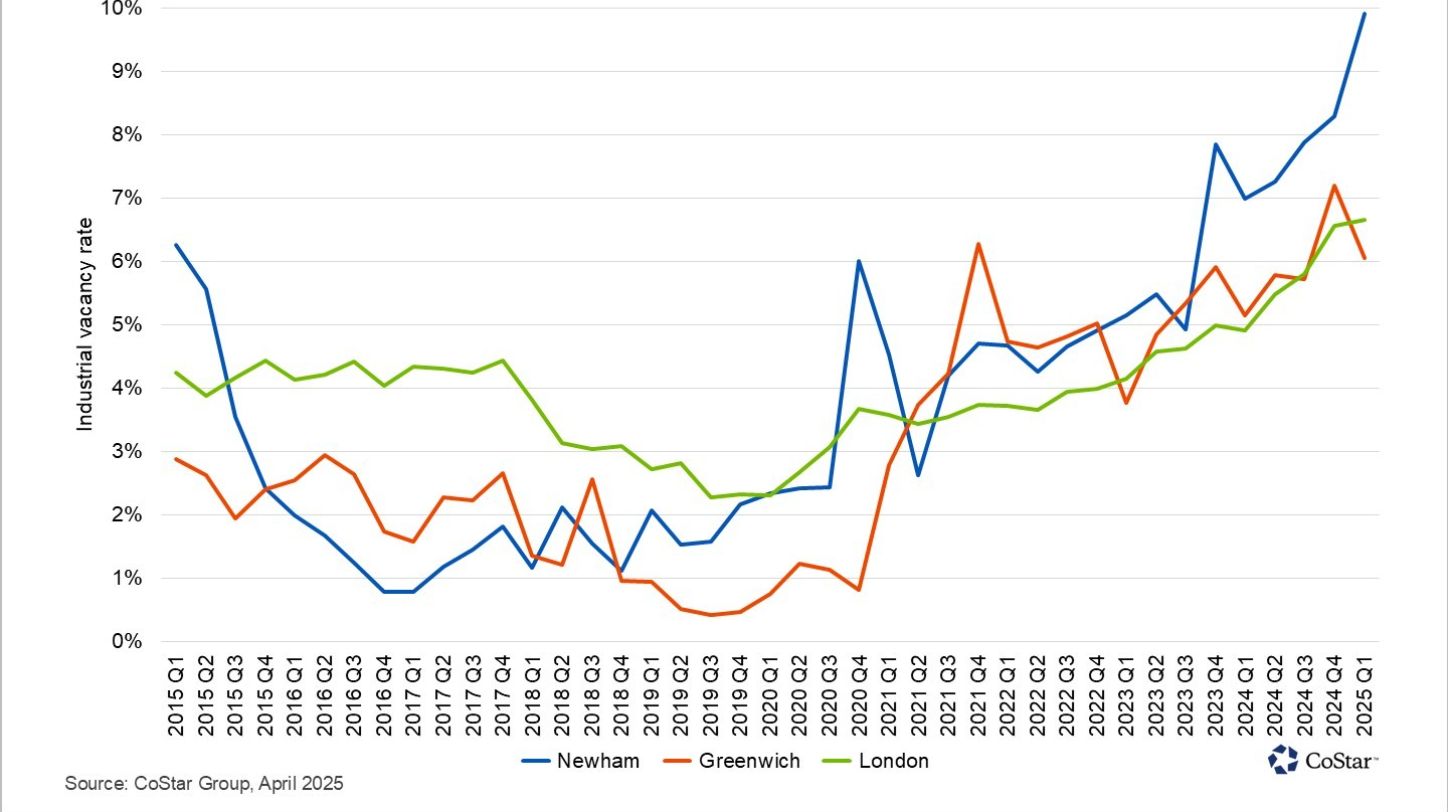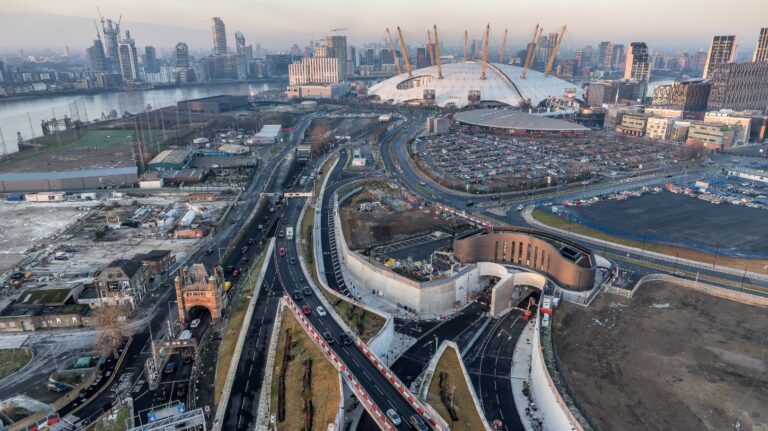Transport for London (TfL) announced the opening of the Silvertown Tunnel on 7 April, with the 1.4km tunnel now linking Newham to the Greenwich Peninsula, with research already suggesting that the infrastructure has yet to cause a boom in logistics space akin to similar projects.
First announced in 2012, the project has been delivered by TfL and Riverlinx, which designed, built and financed the project. It will also operate and maintain the tunnel over the next 25 years.
At the request of the mayor of London, Sadiq Khan, the scheme was reviewed in October 2016, with a series of enhancements made to the proposals to make it greener and more public transport-focused.
Data from CoStar shows that Newham and Greenwich’s logistics space vacancy rate has risen over the last 12 months to 9.9%, one of the highest in London.

This rise, it claims, is due to the completion of around 250,000ft² of new warehouse space at Valor Park East Circular Phase 2 in the east of the Newham submarket, none of which has yet been let.
Only one new scheme has been delivered within a two-mile radius of the tunnel’s northern entrance: a 33,000ft² warehouse at Valor Park Canning Town.
Greenwich has similar vacancies, the data shows, where just 36,000ft² of new industrial space has been delivered at Bloom Greenwich.
However, around 650,000ft² of office space has been built in the Newham and Greenwich boroughs within a two-mile radius of the tunnel. The vacancy rate for this stock is 3.9%, below the London average of 14.2%.
Speaking about how the surrounding logistics infrastructure could be impacted by Silvertown Tunnel opening, Logistics UK’s senior policy manager for road freight regulation, Chris Yarsley, said: “Logistics UK has consistently supported the Silvertown Tunnel project since its inception and, now it is open, the tunnel will play a key part in London’s road infrastructure.
“Industry recognises that road charges are necessary to fund new infrastructure, but larger vehicles do not have the options to switch to other modes of transport and essential delivery vehicles have little alternative option but to use the capital’s road network.
“Industry ends up paying disproportionately more towards construction costs than private road users, and TfL should introduce a flat rate of tolls for fleet operators while offering discounts for zero emission vehicles, which would be more in line with the current London Congestion Charge scheme.”
Entries for the 29th edition of the Supply Chain Excellence Awards are open now!
There are 30 categories available to enter, spanning a broad range of industries, and highlighting excellence in logistics, supply chains, technology, innovation, people, transport and sustainability.
The Supply Chain Excellence Awards celebrate the hard work, dedication and innovation of those working in the logistics and supply chain sector, recognising excellence in the delivery of efficient, reliable and sustainable logistics.
Click here to learn more about the 2025 awards, and don’t forget to enter – it’s free!







